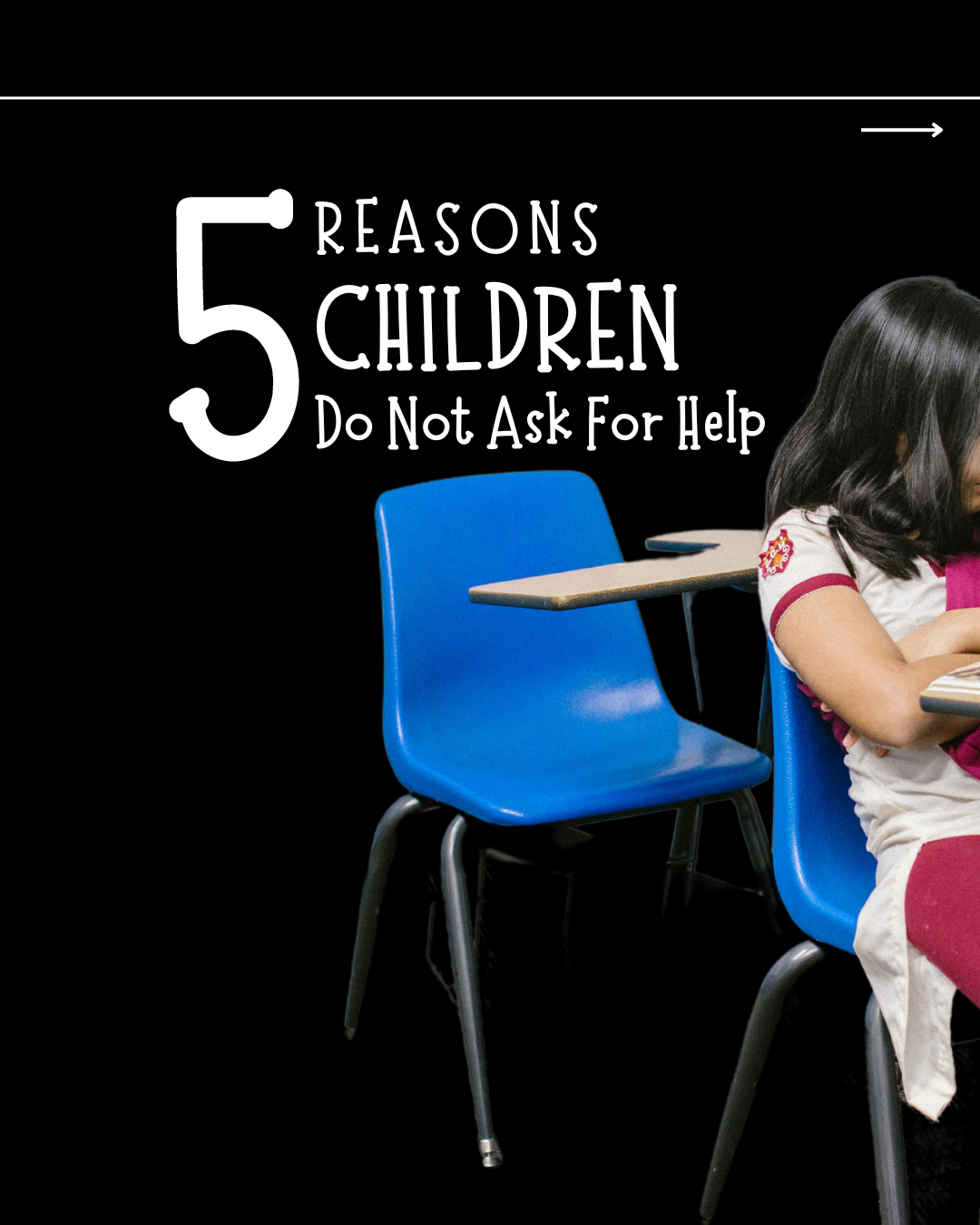The Power of Asking for Help
For many, asking for help is scary. Children and adults share similar reasons that cause hesitation:
1. Fear of Embarrassment: We worry our questions might be seen as foolish and the voices in our heads silence us before we even raise our hands.
2. Lack of Confidence: Doubting what we do know, we allow those voices in our heads tell us that we don’t know.
3. Fear of Rejection: There's that nagging voice again, telling us that our request for help will be turned down.
4. Appearing Weak: We’ve convinced ourselves that asking for help is a sign of weakness, especially in a professional setting where we're looked upon as the experts.
5. Anxiety and Depression: For some, these deeper struggles make the act of reaching out feel insurmountably difficult.
The reluctance to ask for help is not just a personal hurdle; it's a collective barrier to growth and understanding. In the classroom, it can mean the difference between comprehension and confusion. In the workplace, it can stifle innovation, collaboration, and progress. Yet, the irony lies in the fact that nine times out of ten, the question we're holding back is the same one on someone else's mind. How do we break this cycle of silence? It begins with fostering environments, whether educational or professional, where vulnerability is not just accepted but encouraged. Here are a few steps we can all take:
Lead by Example: If you're in a leadership position, ask questions openly. Show that not knowing everything is not just okay; it's normal.
Normalize asking for help: Make discussions about problem solving challenges and uncertainties a regular part of team meetings or classroom settings.
Create Safe Spaces: Whether it's an anonymous question box or dedicated time for Q&A, provide opportunities for people to seek help without fear.
Asking for help is an acknowledgment that we are, after all, life-long learners, curious and capable but also vulnerable and in need of support. Let's reshape our perception of asking for help, viewing it as an opportunity for growth, connection, and collaboration. After all, the person next to you probably has the same question. So go ahead, ask.


